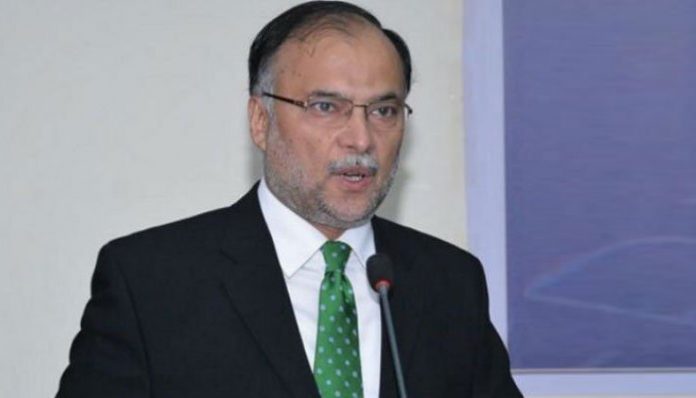Federal Minister for Planning, Development and Special Initiatives, Ahsan Iqbal on Thursday said that the volume of the Public Sector Development Program (PSDP) is likely to be Rs700 billion in Budget (2022-23), which will increase more development opportunities in the country.
At the same time, he said that efforts will be made to raise upto Rs200 billion more through public-private partnership, which will accelerate development projects.
Federal Minister for Planning, Development and Special Initiatives, Prof. Ahsan Iqbal expressed these views while addressing a press conference here at the Press and Information Department.
He said that in a total, 44 percent of PSDP projects are provincial projects and the remaining 46 percent are federal projects, “We have ample opportunities.”
Ashan said, “We had taken PSDP to Rs1000 billion during previous tenure of PML –N government. However, former Pakistan Tehrek-e-Insaf government had brought it to Rs500 billion, which till now should have reached Rs2000 billion.”
He said the government will work mostly on youth issues and water scarcity and other issues, which are very important for the sustainable economic development of the country.
The minister said that there was no work on the projects of China Pakistan Economic Corridor (CPEC) in the previous regime, only a few of these projects started during our tenure.
He said that work on 9 Special Economic Zones (SEZs) of CPEC was to be completed by 2020 but not a single SEZ was completed by the PTI government.
Ahsan said that Chinese industrial relocation was possible only with the completion of these 9 CPEC SEZs, which did not happen.
He said that the Chinese government was more interested in the Hattar Special Economic Zone (SEZ) project, but the Khyber Pakhtunkhwa (KPK) provincial government decided to transfer the project to Rashakai SEZ. “Now the government is trying to include Hattar SEZ also.”




